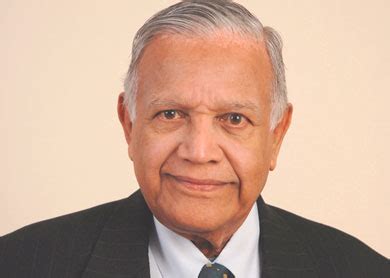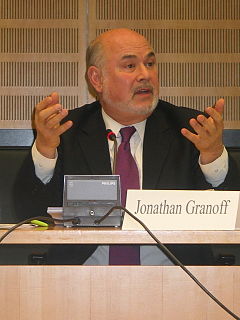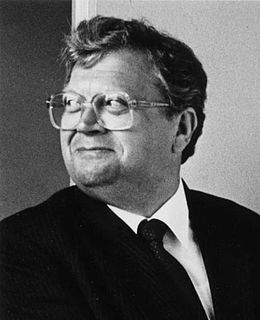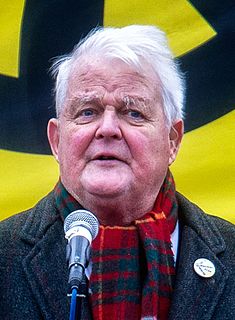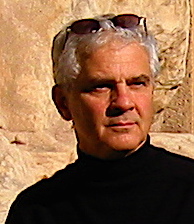A Quote by C. G. Weeramantry
But elimination will only happen if all countries - nuclear and non-nuclear states - genuinely work towards this result. Nuclear states must abolish their arsenals, as was indicated by the unanimous opinion of the international Court of Justice, the highest international tribunal. The five nuclear states seem to expect others to refrain from obtaining bombs while at the same time maintaining their own caches of deadly weapons.
Related Quotes
What is the only provocation that could bring about the use of nuclear weapons? Nuclear weapons. What is the priority target for nuclear weapons? Nuclear weapons. What is the only established defense against nuclear weapons? Nuclear weapons. How do we prevent the use of nuclear weapons? By threatening to use nuclear weapons. And we can't get rid of nuclear weapons, because of nuclear weapons. The intransigence, it seems, is a function of the weapons themselves.
For the United States to recommit itself to the obligation that we undertook in the Nuclear Non-Proliferation Treaty that many other states undertook, which was to work towards disarmament and the eventual elimination of nuclear weapons, is something that manifestly serves our national security interests.
One of the greatest concerns that I had when I became President was the vast array of nuclear weapons in the arsenals of the United States and the Soviet Union and a few other countries, and also the great proliferation of conventional weapons, non-nuclear weapons, particularly as a tremendous burden on the economies of developing or very poor countries.
I don't want to use the term "nuclear weapons" because those people in Iran who have authority say they are not building nuclear weapons. I make an appeal to the countries who do have nuclear weapons. They don't consider them a nuclear threat. But let's say a country that doesn't have nuclear weapons gets involved in building them, then they are told by those that already have nuclear weapons that they oppose [such a development]. Where is the justice in that?
As far as U.S. intelligence knows, Iran is developing nuclear capacities, but they don't know if they are trying to develop nuclear weapons or not. Chances are they're developing what's called 'nuclear capability,' which many states have. That is the ability to have nuclear weapons if they decide to do it. That's not a crime.
On January 20, 2017, Trump will be sworn in as the 45th president of the United States, and he will be given the nuclear codes and the power to launch the U.S. nuclear arsenal, which is comprised of some 7,000 nuclear weapons. A military officer will always be close to Trump, carrying the nuclear codes in a briefcase known as the "football."
If we are to put the era of nuclear terror behind us, we must struggle against the real 'enemy.' That enemy is not nuclear weapons per se, nor is it the states that possess or develop them. The real enemy that we must confront is the ways of thinking that justify nuclear weapons; the readiness to annihilate others when they are seen as a threat or as a hindrance to the realization of our objectives.
Negotiations with Iran, especially, will not be easy under any circumstances, but I suspect that they might be somewhat less difficult if the nuclear-weapon states could show that their requests are part of a broader effort to lead the world, including themselves, toward nuclear disarmament. Preventing further proliferation is essential, but it is not a recipe for success to preach to the rest of the world to stay away from the very weapons that nuclear states claim are indispensable to their own security.
This is a good deal for the United States, north Korea will freeze and then dismantle its nuclear program. South Korea and our other allies will be better protected. The entire world will be safer as we slow the spread of nuclear weapons. The United States and international inspectors will carefully monitor North Korea to make sure it keeps its commitments. ...Only as it does, so will North Korea fully join the community of nations.
